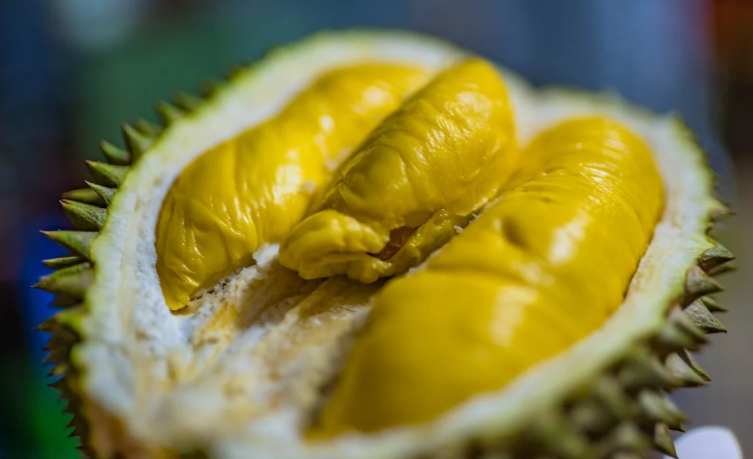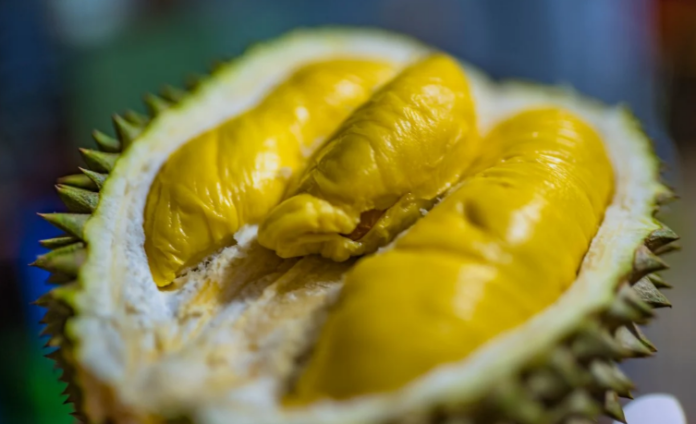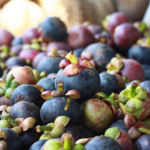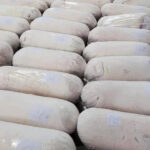
Illustration
While Malaysia’s Musang King durian remains the frontrunner in the international market, the country is actively promoting other premium varieties to meet the growing global demand and expand its export market share.
According to Nor Sam Alwi, the Director-General of Malaysia’s Ministry of Agriculture, in addition to Musang King and Bukit Merah – the two flagship varieties recommended for export due to their rich, creamy texture and intense flavor – other varieties such as Black Thorn, Red Prawn, Hajah Hasmah, Sultan, and Tekka are being assessed for certification and introduction to the international market. The government is undertaking variety registration, agronomic evaluation, phytosanitary compliance, and treatments such as heat treatment, traceability, and export farm certification.
The Malaysian Agricultural Research and Development Institute (MARDI) states that consumers are increasingly favoring unique flavors, including hybrids and native varieties like D24, Tekka, and durian kampong. MARDI is currently developing the MDUR series – a cross between several superior varieties. Notably, MDUR 88 (D190), now renamed MARDI Super 88 (MS88), combines the characteristics of D10 and D24 with a flavor profile similar to Musang King. Other hybrids like MDUR 78 (D188) and MDUR 79 (D189) also exhibit high yield and good disease resistance.
The Director-General of the Federal Agricultural Marketing Authority (FAMA), Abdul Rashid Bahri, stated that besides mainland China and Hong Kong – the primary markets, Malaysia is expanding its exports to countries such as the UK, Canada, UAE, Australia, and the Netherlands. Promotional activities include participating in trade fairs, digital collaborations, and in-store promotions. Additionally, the “Malaysia’s Best” certification program is being intensified to enhance the country’s brand and build global consumer confidence.
In 2023, Malaysia exported 54,374 tons of durian, valued at 1.51 billion ringgit (approximately 357 million USD), with China accounting for 45.7% of the total export value. Export volume is expected to further increase following China’s approval of fresh durian imports.
The durian-planted area in Malaysia increased from 70,286 hectares in 2019 to an estimated 92,129 hectares in 2024, with a projected production of nearly 569,000 tons this year. This expansion is primarily driven by the surging global demand for premium varieties, solidifying the Malaysian durian industry as a crucial pillar in agricultural exports.
A Closer Look at the Honda Vario Repsol Limited Edition’s Arrival in Vietnam
The Honda Vario 160 Repsol has arrived in Vietnam through private import, and it’s a sports enthusiast’s dream. With only 2,000 of these limited-edition bikes available worldwide, this Vario 160 is a rare sight. The bike’s exterior sports a bold and dynamic Repsol livery, a color scheme that pays homage to Honda’s racing heritage and is sure to turn heads wherever it goes.
“Malaysia Lifts Anti-Dumping Duties on Vietnamese Iron and Steel”
The Malaysian government has announced the lifting of anti-dumping duties and investigations on imported goods originating from or exported from the Republic of Korea and Vietnam, effective June 23, 2025.





















